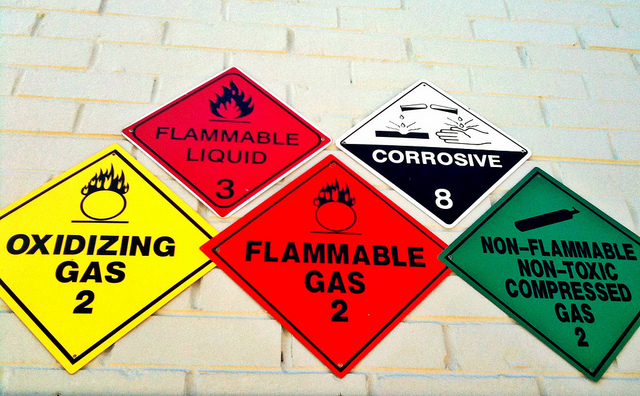Prosecutors rely on informants from time to time to identify wrongdoing and “make their cases.” But corporate fraud whistleblowers can face bleak futures: at best they may be ostracized from future promotions, at worst they may be terminated with no favorable recommendation. Section 806 of the Sarbanes-Oxley Act of 2002 (SOA) adds important protections for whistleblowers
Audit, Compliance and Risk Blog
Jon Elliott
Recent Posts
Supreme Court: Whistleblowing Employees of Contractors to Public Companies Are Protected
Posted by Jon Elliott on Mon, Mar 10, 2014
Tags: Corporate Governance, Business & Legal, SEC, SOX
EPA Proposes To Revise The Agricultural Worker Protection Standard
Posted by Jon Elliott on Wed, Mar 05, 2014
The US Environmental Protection Agency (EPA) administers a Worker Protection Standard (WPS) designed to protect workers exposed to agricultural pesticides. WPS is patterned after the Occupational Safety and Health Administration (OSHA's) Hazard Communication Standard (HCS) for workers in most industrial and commercial settings. EPA adopted the WPS in 1992, and just proposed its first revisions on February 20, 2014. Some of these changes incorporate revisions to HCS adopted by OSHA in 2012 (see my earlier blog), while others catch up on two decades of industrial hygiene and worker safety practices. Comments will be due 90 days after the proposal is published, with final approval to follow sometime later.
Tags: Business & Legal, Employer Best Practices, Health & Safety, OSHA, Employee Rights, Environmental risks, Environmental, EPA, Hazcom
Environmental Compliance: EPA Adopts Hazardous Waste e-Manifests
Posted by Jon Elliott on Wed, Feb 26, 2014
The Resource Conservation and Recovery Act (RCRA) requires you to document all shipments of regulated hazardous wastes. Domestic transportation is documented using Uniform Hazardous Waste Manifests, which are shipping documents prescribed by the US Environmental Protection Agency (EPA) which revises Manifest forms occasionally—including major changes back in 2006. Now EPA has acted again, to create an electronic manifest (“e-Manifest”) option that will take force once EPA finishes the web-page data system required to receive and manage electronic filings.
Tags: Health & Safety, Environmental risks, Environmental, EPA, Hazcom, RCRA
Delaware Confirms Shareholders' Agreements Trump Fiduciary Duties
Posted by Jon Elliott on Wed, Feb 19, 2014
Many investors in small companies are generally aware that company directors owe shareholders “fiduciary duties,” which they expect will protect their rights. (I discuss them in my ebook, and in my discussion of a 2013 decision). That’s true as far as it goes, but investors need to remember that these duties can be clarified by state statutes that expand or reduce their traditional meaning, and can be over-ridden by a company’s shareholders agreement. The influential Delaware Supreme Court issued a decision late last month, confirming that a plaintiff had bargained away her rights. Here’s a summary of the case:
Employment Law: Supreme Court Affirms No Pay To Change Clothes
Posted by Jon Elliott on Thu, Feb 13, 2014
The Fair Labor Standards Act (FLSA) was first enacted in 1938, to ensure “fair pay” for American workers. Sixty-five years later, it is invoked most often when minimum wage and overtime premium pay are under discussion. But it also includes a number of important secondary provisions—including one requiring employers and employees to determine which time at the workplace is considered “work” that must be compensated, and which is not.
Tags: Corporate Governance, Business & Legal, Employer Best Practices, Employee Rights
The year 2013 has been another relatively quiet one for most environmental health and safety (EH&S) compliance personnel. Continuing differences in Congress have stymied would-be initiatives on both sides of the partisan aisles, so there were no meaningful legislative changes.
Tags: Health & Safety, OSHA, Environmental risks, Environmental, EHS, EPA, Hazcom, Transportation
For the second year running, SEC activities during 2013 were dominated by its efforts to issue rules required by two major pieces of recent legislation:
Tags: Corporate Governance, Business & Legal, SEC, Employer Best Practices, Accounting & Tax, Accountants, JOBS Act
With legislation action on climate change deadlocked by partisan divisions in Congress, the Obama Administration is pursuing a growing set of administrative and regulatory initiatives under existing authority. Many of these involve actions by the Environmental Protection Agency (EPA) applying Clean Air Act (CAA) authority, but some involve other EPA authority and/or other agencies.
Tags: Health & Safety, Environmental risks, Environmental, EPA, Hazcom
OSHA: Is It Time To Update The Process Safety Management Standard?
Posted by Jon Elliott on Thu, Jan 09, 2014
The Occupational Safety and Health Administration’s (OSHA’s) Standard for Process Safety Management of Highly Hazardous Chemicals (usually referred to as “PSM”) in 1992, requires extensive risk assessments and reduction efforts by facilities where a significant incident involving these chemicals might have catastrophic consequences. OSHA adopted PSM in 1992, and has made only minor technical revisions in the ensuing two decades. However, several federal and state initiatives are developing recommendations and may lead to significant changes in 2014.
Tags: Employer Best Practices, Health & Safety, OSHA, Training, Environmental, EHS, Hazcom
December 1, 2013 marked the first major compliance deadlines for most employers to comply with revisions to the Occupational Safety and Health Administration's (OSHA's) Hazard Communication Standard (HCS or Hazcom) adopted by OSHA effective May 25, 2012. Hazcom provides basic chemical information in millions of workplaces in the U.S. (Canadian readers will be familiar with analogous Workplace Hazardous Materials Information System (WHMIS) requirements).
Tags: Corporate Governance, Health & Safety, OSHA, Training, Hazcom

.jpg)








